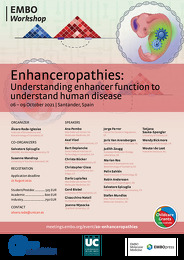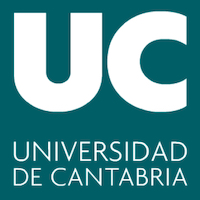About the Workshop
Due to the current COVID-19 emergency this workshop might need to be cancelled depending on national and local recommendations. In order to give both organizers and participants more time before making any decision, the registration and payment deadlines have been extended. In case of cancellation, registration fees will be reimbursed. We also recommend all invited speakers and participants to purchase their flight tickets with a cancellation insurance
Mutations within coding genes have traditionally been considered the major genetic cause of human disease. However, it is becoming increasingly clear that the genetic, structural and/or epigenetic disruption of enhancers represent major etiological factors in numerous human diseases (i.e. enhanceropathies), ranging from rare congenital disorders to common diseases associated with ageing and lifestyle (e.g. cancer, diabetes). Although changes in enhancer activity are predicted to have broad pathological and therapeutic implications, we currently have a limited understanding of human enhanceropathies. This reflects, at least partly, our still primitive and partial understanding of the mechanisms whereby enhancers can control gene expression. To overcome these limitations, this workshop will bring together experts in enhancer biology, gene regulation and medical genetics that, during three days, will present their latest work. Our invited speakers and participants will discuss the multidisciplinary approaches required to investigate enhancer function as well as debate about the role of enhancers in fundamental biological processes (e.g. embryonic development, evolution) and in the etiology of human disorders. Ultimately, the goal of this EMBO Workshop will be to provide a complete view of how a deep and systems-level understanding of enhancer function can facilitate elucidating the molecular basis of human enhanceropathies.
About EMBO Courses and Workshops
EMBO Courses and Workshops are selected for their excellent scientific quality and timelines, provision of good networking activities for all participants and speaker gender diversity (at least 40% of speakers must be from the underrepresented gender).
Organisers are encouraged to implement measures to make the meeting environmentally more sustainable.





